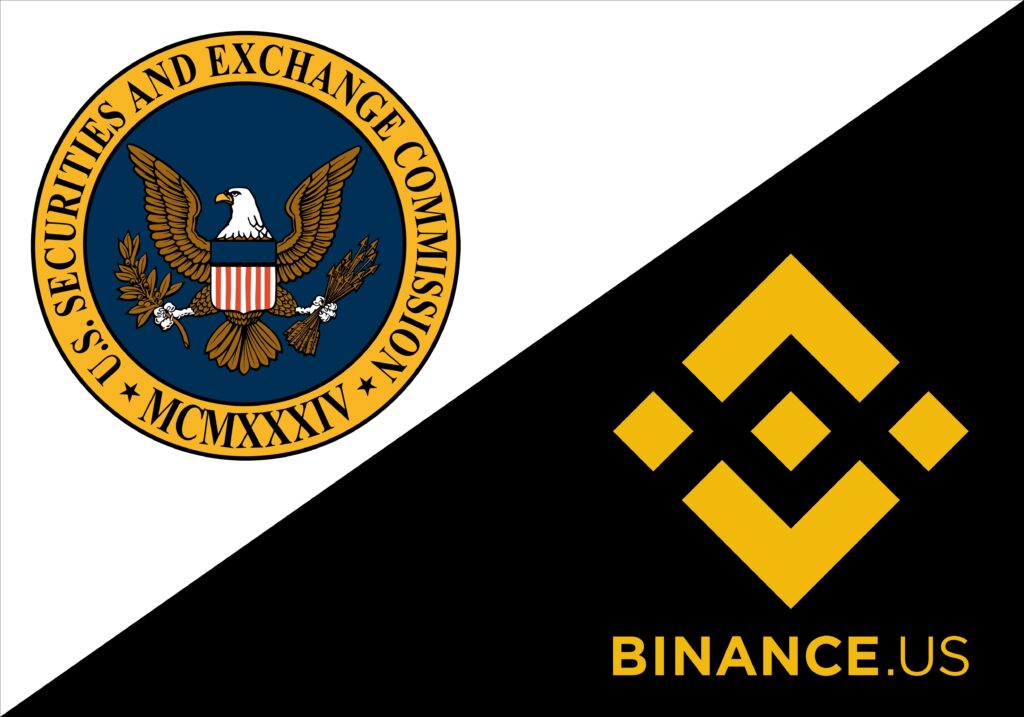Crypto News: 5 Major Developments in Crypto Recently
SEC is going after Binance and Coinbase, PayPal launches its own stablecoin, attackers steals $61 million from Curve Finance and then returns it, mixed views on the possibility of spot Bitcoin ETFs, and a potential crypto oversight bill to bring more regulatory clarity. There is a lot that happened. Here are the major developments in crypto recently and how they might impact the sector.
SEC Vs Crypto

The year saw a series of lawsuits initiated by the U.S. Securities and Exchange Commission (SEC), starting with Bittrex and Kraken, followed by Celsius Network Limited and Angela Elbanna’s platforms. However, the high-profile cases against Binance and Coinbase in June stole the spotlight.
The SEC filed charges against Binance Holdings Ltd., its U.S. affiliate BAM Trading Services Inc., and founder Changpeng Zhao. The allegations against Binance include – allowing unauthorized U.S. investors to trade on its international exchange, commingling funds, and alleged securities law violations.
Coinbase faced a more focused complaint related to allegations of functioning as a national securities exchange without SEC registration for allowing trading of certain cryptocurrencies and the staking-as-a-service program that the SEC classifies as security offerings.
Following the complaints, both Binance and Coinbase experienced significant drops in share prices and a massive surge in withdrawal requests. Tokens like Solana, Cardano, Filecoin, and Polygon, classified as securities in multiple complaints by the SEC, also saw 6% to 13% price drops.
But it’s not all bad. Ripple’s partial victory against the SEC in July came as a glimmer of hope for the crypto industry. The court ruled that XRP sales on digital asset exchanges weren’t offers and sales of investment contracts, setting a potential precedent for similar cases.
Overall, the SEC’s all-out efforts to target crypto exchanges indicate a clear intention to exert more regulatory control in the crypto space. We covered the ongoing battle between the SEC and the crypto industry here, discussing the cases in-depth and what it holds for the future of crypto.
PayPal launches PYUSD stablecoin

PayPal introduced its own stablecoin called PayPal USD (PYUSD) on August 7, 2023, marking a big shift for the payment giant as it expands its reach further into the crypto space.
Issued by Paxos Trust Company, a fully licensed limited purpose trust company, the coin is backed 100% by a mix of U.S. dollar deposits, U.S. Treasuries, and similar cash assets.
As per the official announcement, PYUSD is an ERC-20 token built on the Ethereum blockchain, allowing it to integrate seamlessly with the existing Web3 and DeFi ecosystems. And, of course, you can buy, sell, and hold the coin on PayPal’s own crypto marketplace.
The crypto community, at large, is excited about this new major development. PayPal’s entry into stablecoins could be a game-changer, nudging crypto closer to mainstream acceptance. Yet, not everyone is cheering. Congresswoman Maxine Waters has raised concerns about a big player like PayPal entering a space where rules and oversight are still taking shape.
It would be interesting to see how things unfold going forward.
Curve-Vyper Attack
A storm hit the DeFi landscape on July 30 as the stable pools of Curve Finance fell victim to a reentrancy vulnerability rooted in the Vyper programming language. This exploit shook up the entire DeFi space, and what followed was fascinating, to say the least.
Initially estimated at $47 million, the losses soon reached over $61 million. The ripple effect extended beyond Curve Finance, impacting other DeFi projects like Ellipsis, Alchemix, JPEGd, and Metronome.
To make things worse, Michael Egorov, founder of Curve Finance, recently took out $100 million in loans backed by CRV tokens. As a result, the CRV token’s price plummeted nearly 30% to $0.48, fueled by fears that Egorov’s collateralized loans would trigger a sell-off. Egorov decided to sell CRV tokens at a discounted price to repay his loan to prevent further damage.
Amid the turmoil, ethical hackers stepped in to reverse some damage and save the project from collapsing. One ethical hacker recovered 2,879 Ether valued at $5.4 million from an exploiter, promptly returning it to Curve Finance. Just hours later, another seized almost 3,000 ETH.
The most surprising turn of events came when Curve Finance, Metronome, and Alchemix collaborated to offer a 10% bounty for the return of stolen funds and vowed against pursuing legal actions. The attacker accepted the offer and returned all stolen funds to Curve Finance, Alchemix, and JPEGd within a mere two days.
For a deep dive into the full timeline and technical nuances, check out Cointelegraph’s comprehensive coverage of the Curve-Viper attack.
Also, check out the biggest DeFi attacks last year.
Will SEC Approve Spot Bitcoin ETFs
The SEC’s recent approval of six spot Bitcoin ETF applications for review on July 19 has sparked new hope in the industry. This new influx of contenders, including big names like BlackRock, Bitwise, VanEck, WisdomTree, Fidelity, and Invesco, joins the existing applicants, making a total of nine pending applications eagerly anticipating a green light.
But the burning question remains: Will the SEC actually give the nod to a spot Bitcoin ETF?
Industry leaders like Mike Novogratz, CEO of Galaxy Digital, and Cathie Wood, CEO of Ark Invest, seem optimistic, suggesting it’s not a matter of “if” but “when” the SEC takes the plunge.
However, a different perspective emerges from John Reed Stark, a former SEC attorney. On August 18, 2023, Stark shared his thoughts on Twitter, expressing skepticism about the likelihood of an SEC-approved spot Bitcoin ETF. He summed it up as “Slim and None,” pointing to concerns over regulatory oversight and potential market manipulation.
It’s no surprise that the crypto ETF market has massive potential and if approved, can introduce numerous new opportunities and challenges that we can’t even predict yet. That explains the enthusiasm and optimism from prominent players in the ETF sector to seize an early advantage and solidify their position as authoritative figures.
Crypto Oversight Bill
A promising stride toward regulatory clarity emerged on July 26, 2023, as the new crypto oversight bill introduced by the U.S. House Republicans on July 21, 2023, first drafted back in June, successfully passed a key congressional committee.
But what is this bill all about?
At its core, the bill serves two purposes: to bring much-needed regulatory clarity and to foster smoother interactions between crypto enterprises and regulatory authorities.
On a more technical level, the bill aims to expand the provisions and oversight of the Commodity Futures Trading Commission (CFTC) over the crypto industry while simultaneously delineating the Securities and Exchange Commission (SEC)’s jurisdiction.
This came at a crucial time when concerns about the SEC’s perceived overreach are mounting, magnified by their recent legal battles with major players like Coinbase and Binance.
Overall, this bill represents a significant victory for the crypto sector, a step towards bridging the gap between innovation and regulation.